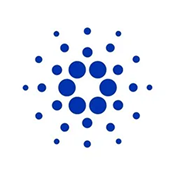When evaluating blockchain platforms, enthusiasts often focus on aspects like scalability, security, and developer experience. The Internet Computer (ICP) and Cardano are two prominent contenders, each with unique architectures and visions for the future of decentralized technology. While ICP aims to revolutionize web-scale applications with internet-native performance, Cardano emphasizes layered security and sustainability through its proof-of-stake protocol. This comparison explores their core features, technical architectures, and ideal use cases, providing a comprehensive guide to help investors and developers understand their distinctions and potential.
Short on time? Jump to Internet Computer vs Cardano Comparison
Understanding Internet Computer and Cardano ?
The Internet Computer (ICP), developed by the DFINITY Foundation, is a blockchain platform designed to create a decentralized internet infrastructure that supports scalable, high-performance applications. It leverages innovative techniques like sharding, subnets, and the Threshold Relay consensus mechanism to achieve internet-scale throughput—handling over 11,000 transactions per second—and cost-effective data storage, with prices as low as $5 per GB annually. ICP emphasizes interoperability, allowing direct integration with blockchains like Bitcoin and Ethereum without bridges, thus fostering a more connected ecosystem.
Cardano, launched in 2017 and led by Ethereum co-founder Charles Hoskinson, adopts a layered architecture comprising the Cardano Settlement Layer (CSL) and the Cardano Computation Layer (CCL). Its primary focus is on security, sustainability, and flexibility, utilizing the Ouroboros proof-of-stake consensus protocol, which is reputed for its energy efficiency and scalability—supporting over 1,000 TPS. Cardano’s modular design allows for easier upgrades and customizations, making it suitable for diverse applications, from financial services to government projects.
Both platforms seek to address the limitations of traditional blockchains: ICP by enabling internet-scale decentralized applications with high throughput and low costs, and Cardano by offering a secure, scalable, and environmentally friendly platform for smart contracts. Their differing approaches reflect distinct visions: ICP aims to build a decentralized web infrastructure, while Cardano emphasizes formal verification and layered security for enterprise-grade solutions.
Understanding these foundational differences is crucial for developers choosing a platform for their projects or investors assessing long-term potential. ICP’s focus on performance and interoperability makes it suitable for complex, user-friendly decentralized apps, whereas Cardano’s emphasis on security, formal methods, and modularity appeals to those prioritizing safety and scalability in their blockchain solutions.
Key Differences Between Internet Computer and Cardano
Architectural Design
- Internet Computer: The Internet Computer utilizes a unique canister architecture supported by subnets and sharding, enabling scalable internet-native applications with high transaction throughput. Its architecture is optimized for seamless integration and performance at web scale, with innovative consensus mechanisms ensuring fast finality and security.
- Cardano: Cardano employs a layered architecture separating the settlement and computation layers, each optimized for specific functions. Its design emphasizes security, formal verification, and upgradeability, allowing smart contracts to be built in multiple languages and supporting complex, enterprise-ready applications.
Consensus Mechanism
- Internet Computer: ICP uses the Threshold Relay consensus combined with a novel randomness beacon, supporting high throughput and resilience without sacrificing security. This mechanism enables ICP to process thousands of transactions per second efficiently, making it suitable for high-demand applications.
- Cardano: Cardano’s Ouroboros proof-of-stake protocol is designed for energy efficiency and security, achieving over 1,000 TPS. Its formal proof ensures provable security, and the protocol’s design supports decentralized participation through thousands of stake pools.
Development Environment
- Internet Computer: ICP’s development is centered around Motoko, a language optimized for the platform’s actor model and WebAssembly. Motoko simplifies smart contract development with features like orthogonal persistence and safety checks, lowering barriers for developers to create scalable applications.
- Cardano: Cardano supports smart contracts written in languages like Haskell (Plutus), IELE, and via various SDKs, reflecting its modular and flexible approach. Its focus on formal methods ensures correctness, making it appealing for applications requiring high assurance.
Interoperability
- Internet Computer: ICP emphasizes interoperability by enabling direct, bridge-free communication with other blockchains like Bitcoin and Ethereum, facilitating cross-chain applications and data sharing at a native level.
- Cardano: Cardano is developing sidechains and interoperability protocols, like the Polkadot framework, to enable off-chain computation and cross-chain compatibility, aiming to expand its ecosystem and application scope.
Target Use Cases
- Internet Computer: ICP is ideal for building scalable decentralized applications, content delivery networks, DeFi platforms, and digital identity solutions that require internet-scale performance and seamless user experiences.
- Cardano: Cardano targets enterprise-grade solutions, government projects, and financial applications where security, formal verification, and regulatory compliance are paramount, making it suitable for long-term, high-assurance systems.
Internet Computer vs Cardano Comparison
| Feature | ✅ Internet Computer | ✅ Cardano |
|---|---|---|
| Transaction Speed | Up to 11,000 TPS | Over 1,000 TPS |
| Consensus Protocol | Threshold Relay with randomness beacon | Ouroboros Proof-of-Stake |
| Cost of Data Storage | $5 per GB/year | Variable, optimized for minimal cost |
| Smart Contract Languages | Motoko, WebAssembly | Haskell (Plutus), IELE, others |
| Interoperability | Native cross-chain integration | Sidechains and Polkadot framework |
| Ideal For | Scalable web applications and decentralized services | Secure enterprise applications and DeFi |
Ideal For
Choose Internet Computer: Developers and entrepreneurs seeking high-performance, scalable decentralized applications with native internet integration.
Choose Cardano: Organizations and developers prioritizing security, formal verification, and modular upgrades for enterprise or regulatory compliance.
Conclusion: Internet Computer vs Cardano
The Internet Computer and Cardano represent two distinct yet complementary visions for the future of blockchain technology. ICP’s focus on internet-scale performance, interoperability, and developer-friendly features makes it a compelling choice for building decentralized web services and content platforms. Its innovative consensus and architecture support high throughput and low costs, addressing critical scalability issues that hinder many traditional blockchains.
Conversely, Cardano’s layered design, formal methods, and emphasis on security and sustainability position it as a resilient platform for enterprise solutions, government projects, and applications requiring high assurance. Its modular architecture facilitates upgrades and customization, making it adaptable to evolving regulatory and technological landscapes.






